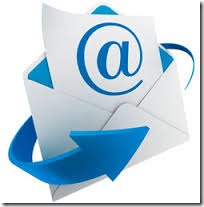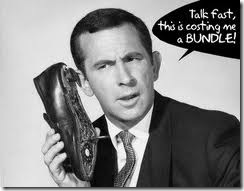If you use Hotmail, Yahoo Mail, Gmail, or any of the other online email services, you will always run the risk of having your email account compromised or “hacked”.

What this means is that some scoundrel has found a way to steal your password and take over your account.
How do you know if this has happened? Here’s a partial list:
1 Your account is sending out spam.
2.Your password doesn’t work anymore.
3.Someone deleted information from your account.
4.Someone changed your account information
5.You can’t get into your account to reset your password.
6.Friends call you up and say they’ve got a pretty weird e-mail from you,except it doesn’t look like something you’d send.
Some other nasty surprises:
If you cannot get into your account, you may lose you Contacts, Calendar items, and any attachments that have come into your Inbox.
That’s a lot to lose.
What to do?
If you can manage to log into your account and change your password (to something really hard to guess) then you have done the quick fix.
You’re usually not going to be that lucky.
You can try the support and help on the Yahoo, Hotmail, Gmail websites. but, basically, if you can’t log in with your password you’re done. Contacting Support or Customer Care on these websites may solve your problem, it may not. People’s experience varies widely.
You may have to forget about that e-mail account and your e-mail address and just create a new account.
This is a pain because now you have to send everybody a new address.
If all your Contact info (e-mail addresses especially) are online – in that Yahoo account you don’t have access to anymore – how are you going to notify everyone? Good luck.
Hopefully, you have all this information written down somewhere or in another program on your computer.
I can’t tell you how many people do not keep a separate list of these things, and how often they’ve been left with absolutely no way to get in touch with anybody by e-mail.
Well, actually I can – because I keep a record of such things.
So, here’s what you need to do to protect yourself from this predicament:
1. Store all your Contacts in a file that is only on your hard drive. Whether it’s a plain text file, a Word document, an Excel spreadsheet, or another email program – it doesn’t matter. Just have those contacts in another file for safe keeping.
– Of course, many people will print out lists of contacts or hand write them into a Daytimer or some other paper directory. I do.
2. Attachments that you want to keep should be saved to your computer and not kept in an email program. This goes for those of you using Outlook or Mac Mail as well as the online webmail services.
Do not use email programs like a file manager. The analogy I use is that of a rural mailbox at the end of a very long driveway. You wouldn’t keep all your mail out there – you’d bring it into the house.
3. Keep a written record of your Calendar Events.
Nothing beats writing important dates and appointments down on paper. It’s the simplest and most reliable way.
But even if you don’t want to do that, keep a record of this info in a program that lives permanently on your hard drive i.e.. Outlook or a Personal Information Manager program.
4. Passwords:
Believe or not, many people keep their passwords and website log-in information (for Facebook or iTunes etc.) in their webmail or in some other online-only program.
This is inviting disaster. Not only could you lose these passwords if you can’t get into your online account but these passwords and user I.D.s are just sitting there waiting for some hacker to collect. Don’t do it.
Instead, write them down and store in a safe place. You can also use some great little programs on your computer such as SplashData that are specifically made to store sensitive information.
Also, do not email passwords to yourself.
5. Email messages
There are some email messages you just want to keep. They could be a poem someone sent you, or important reference material – whatever. These should be saved as individual files and stored in folders on your hard drive. Or printed out if they are that important.
You can even copy and paste email messages into a word processor document and save them that way.
So, in summing up, have a back up of your Contacts and Calendar items, save important attachments and passwords in files on your hard drive.
And then I strongly suggest you back up the whole works to an internal hard drive or at least a USB stick (thumb drive, memory stick).
Personally, I even make a DVD back up of anything I really want to keep. It’s the most indestructible method to keep crucial documents, valuable data, pictures and music. DVDs are not forever, but close enough. Everything else is vulnerable to magnetic and electric fields and potentially unsafe.
Save and Back Up! Do it. Do it today.








